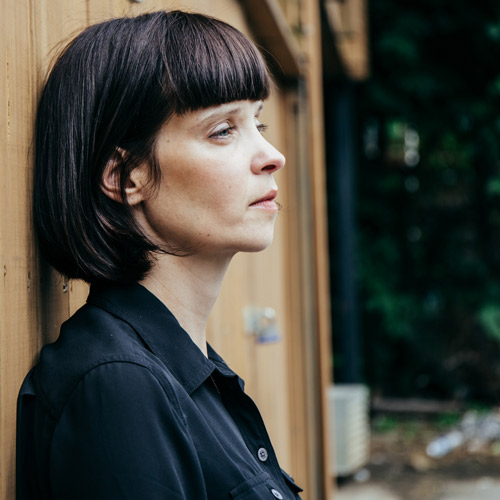Toni Jensen is the author of Carry: A Memoir of Survival on Stolen Land, a finalist for the Dayton Peace Prize, and a New York Times Editors’ Choice book (Ballantine 2020). An NEA Creative Writing Fellowship recipient in 2020, Jensen's essays have appeared in Orion, Catapult, and Ecotone, among others. She is also the author of the story collection From the Hilltop. She teaches at the University of Arkansas and the Institute of American Indian Arts. She is Métis.
- PhD, Texas Tech University
- MA, University of South Dakota
I come from a family of English teachers and readers. Both my grandmothers taught in one-room schoolhouses, and both parents read voraciously—everything from genre novels to historiographies to hands-on books about trapping and growing squash. The good arguments in my family were and are about books, and the best arguments always have been about fiction.
Teaching fiction and nonfiction writing, for me, is about bringing students into the world of the good arguments. Say, for example, the student has written a cheating heart story. What effect does it have on the storyline when the brother takes the sister-in-law’s hand, declares his undying love? Should the moment be played for high or low comedy? Should the moment be one in which time is suspended, so that we see how the light filters or does not filter into the darkest corners of that bedroom? In nonfiction, what will the narrator focus on during the high or low moments of the narrative? What shape or form will the essay or memoir take? Arguing over the answers to these types of questions is the job of the writing student.
The job of the mentor, then, is to create an invigorated space for these arguments: to offer up craft talks and exercises and meaningful reading assignments; to moderate, of course; and sometimes to lead. Also, it’s the role of a mentor to ensure everyone in a mentorship, workshop, or program knows they’re valued. I teach a wide range of literature, and I most often teach the diverse work of Indigenous writers as models. I start with fiction and nonfiction from Indigenous writers and branch out from there, and this process is intentional. The default in other spaces is the inverse. It’s part of my teaching and mentoring to upend the default to whiteness that is a feature of so much of higher education.
My mentoring approach also emphasizes writing production alongside revision, which is a more individuated process so that, by a semester’s end, students have created a high volume of diverse work and have begun the work of revising it. The focus is on creation, on generation, and on getting past static notions of how a student sees her writing or herself as a writer into the writing itself. For more advanced students, the focus is on the creation and also revision so that each student can graduate with a large body of work, such as an essay collection, memoir, novel, or story collection of which they’re proud.
- Carry: A Memoir of Survival on Stolen Land. Ballantine, 2020.
- From the Hilltop: Stories.
- Dayton Peace Prize Finalist, 2021.
- National Endowment for the Arts Fellowship, 2020.

